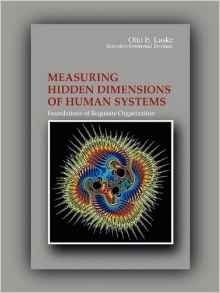Can you imagine being part of a dialog in which you not only listen to what your interlocutor is saying but also to the underlying structure of his or her thinking? If you had knowledge of the thought form structure of human sense making, this way of listening, called “dialectical”, would enable you to point to what is missing (absent) both in your own and others’ verbal communication. It would thereby help you deepen your and others' thinking in real-time dialog. Your critical listening would then not be restricted to content but would equally focus on underlying thought structures used by your interlocutors. In a team and group context, you would be able to point to interlocutors’ thought gaps in a compassionate, inter-developmental, way. Such gaps are not “academic”. They are more serious than that since they translate into gaps between how people think and how reality works. It is this kind of dialog that the present article introduces. The article paves the way for an intelligent reading and teaching of the Manual of Dialectical Thought Forms (DTFM), which in the near future will become available in pdf form on this website under Publications. The article introduces cutting-edge thinking tools... Read More...
Tag: dialog
A New Era Begins at the Interdevelopmental Institute, Gloucester, MA, USA (IDM)
As the Interdevelopmental Institute (IDM) enters a new era, it wants to communicate what it has learned and what, based on its learning over nearly 20 years, it can now deliver to CEOs and Boards. Find out how the Institute's main methodology, called Constructive Developmental Framework (CDF), addresses contemporary issues such as the digital transformation of businesses in all of its facets. Take note of the critical realism CDF tools embody (thanks to Roy Bhaskar's work on a dialectical ontology), and IDM's critical theory practice that now provides a new home for Frankfurt School insights just in time ... Sincere thanks to the international community of students who have made IDM widely known through their own work over many years! A New Beginning at IDM Read More...
From “Developmental Theory” to a Dialogical and Dialectical Epistemology
By Otto Laske - In this text, I focus on the central relevance of interviewing skills for being able to lead a structured developmental dialog in the sense of the Constructive Developmental Framework (CDF), whether social-emotional or cognitive. I want to make it clear that the certification as a Master Developmental Consultant/Coach at the Interdevelopmental Institute (IDM) is not a certification in practicing “developmental theory”, but rather an independent discipline derived from it, namely, a dialogical and dialectical epistemology. Developmental theory per se is taught at IDM only in applied courses which serve as a basis for learning the CDF epistemology, and in this sense are mere teasers for learning to think and listen developmentally, dialogically, and dialectically. What matters is not the theory, but its applications in work with human resources (“human capital”). This has always been the focus of IDM teaching. Abbreviations: CDF = Constructive Developmental Framework (Laske); DCR = Dialectical Critical Realism (Bhaskar); DSF = Dialectical Schema Framework (Basseches); DTF = Dialectical Thought Form Framework (Laske); IDM = Interdevelopmental Institute (Laske). *** When I started writing my two books on Measuring Hidden Dimensions in 2005, it was clear to me that the most progressive part of Kegan’s... Read More...
From AQAL to AQAT: Dialog in an Integral Perspective
By Bruno Frischherz - The background of this paper is a longitudinal study in adult development that is based on the structured interviewing required for using Laske’s Constructive Developmental Framework (CDF). In what follows, I will compare the CDF methodology with methodological tools offered by Integral Theory. Integral theory provides a helpful starting point for the analysis of themes and perspectives. But I will argue that integral theory is unable to fully account for the category of YOU that is fundamental in every dialog. Dialog is crucial not only for private communication but equally for scientific research, both in and between disciplines, as well as for professional practice. Given the limitations of Integral Theory, I am proposing a dialectical extension for AQAL which I call AQAT, meaning All Quadrants – All (dialectical) thought forms (context, process, relation, transformation). Download: Frischherz_2014_dialog_in_an_integral_perspective Read More...
